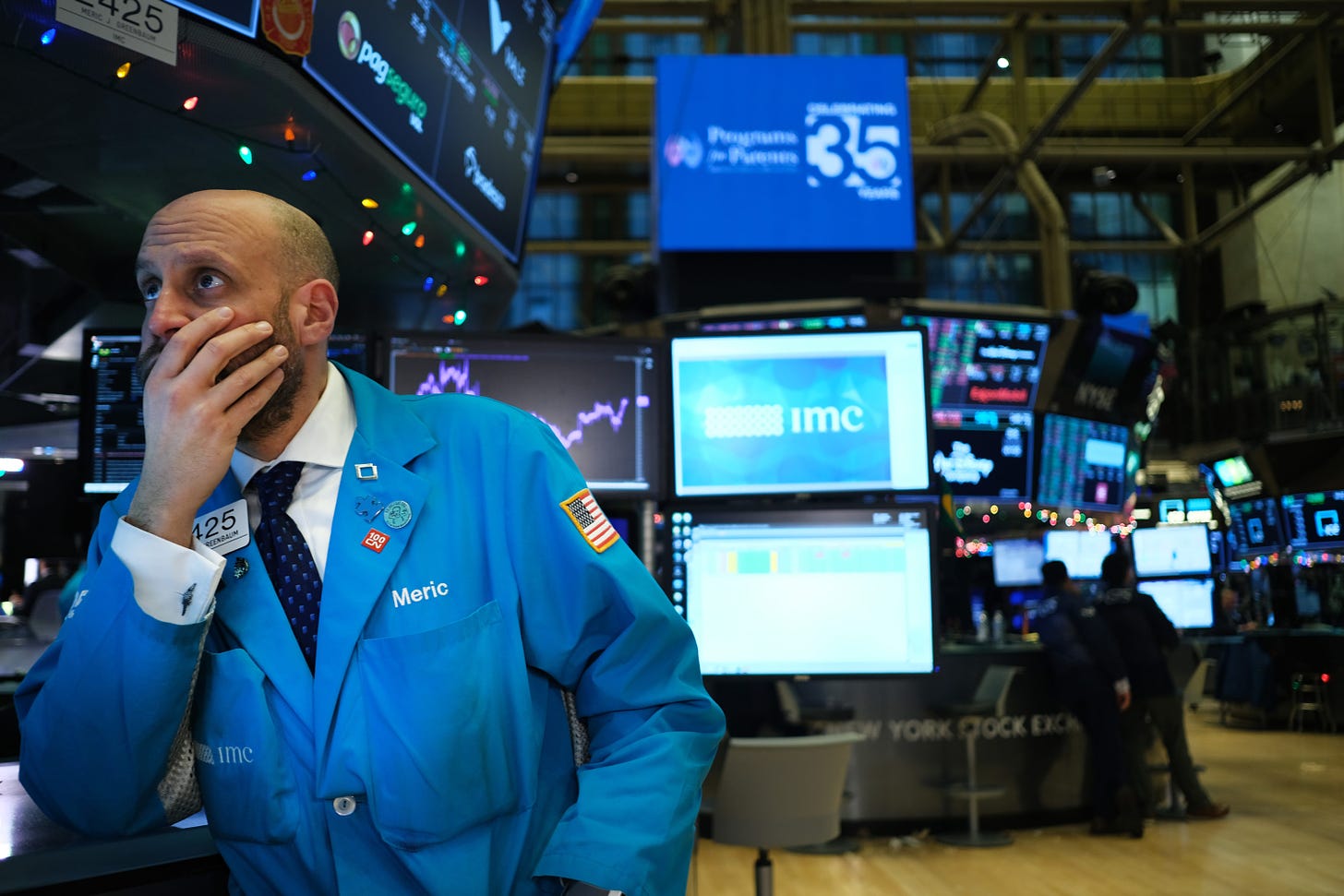The 2020 Economy Could Be Bad for Trump… And the Rest of Us
As signs of a global recession threaten the president’s reelection, the administration seems blissfully unaware.
As President Trump seeks re-election, he would ignore indications of trouble in the global economy at his own peril. In much the same way as the 2008 Lehman bankruptcy put paid to John McCain’s 2008 presidential bid, an economic crisis abroad in 2020 could very well spill over to our shores and dash President Trump’s reelection hopes.
Largely as a result of President Trump’s trade war, the world economy will be starting 2020 in a weakened state. Over the past year the global economy experienced its slowest growth rate since 2009. As the IMF recently observed, 90 percent of the world’s economies are slowing now, whereas 75 percent were picking up pace in 2018.
More troubling yet is the fact that a decade of ultra-easy money by world’s major central banks has created a global credit and asset price bubble of epic proportions that now hangs over the global economy like a dark cloud.
One indication of this bubble is the fact that global debt levels in relation to GDP are significantly higher today, after a prolonged economic expansion, than they were at the start of 2008 amid a generational economic crisis and recession. In addition, American and global equity valuations appear to be stretched and housing bubbles have appeared in Australia, Canada, the United Kingdom, and parts of the United States.
Meanwhile, an alarming amount of credit has been extended to non-creditworthy borrowers around the globe at historically low interest rates. Of particular concern is the very high level of leveraged loans in the U.S. corporate sector and the excessive amount of dollar-denominated borrowing by emerging market corporations.
Nobody can know when the global credit and asset price bubble will burst or what event will burst it. However, with the global economy flagging over the past year, it would be rash to dismiss out of hand the possibility that the pop may come well before the November election.
Many economic trends would have to reverse to signal a resurgent global economy in 2020. These include the recent sovereign debt default in Argentina, the mounting Chinese and Turkish private credit defaults, the We Work financial market fiasco, and the abrupt economic slowdown in China and Germany -- the world’s second and third largest economies, respectively. The Italian, and U.K. economies also appear to be on the cusp of recessions, and Indian economic growth has halved amid increased domestic political strife.
It is also of concern that President Trump has only a fragile truce in his trade war with China and that he is now threatening to impose additional import tariffs on an already weak European economy..
Further heightening the risk that the global credit bubble might burst in 2020 is a deteriorating global political landscape. Beyond heightened geopolitical risks in North Korea and Iran and renewed turmoil in the Middle East, social protests seem to be gaining momentum in countries as disparate as Chile, Bolivia, Colombia, France, Hong Kong, India, and Iran. Worse yet, there is every indication that this social unrest is spreading from one country to another.
Past experience, including from 2008, should inform us that when credit and asset price bubbles burst, the economic and financial market fallout can be disruptively large. The 2008 experience should also remind us how interconnected the world’s economic and financial systems have become. Much in the same way as the September 2008 Lehman bankruptcy spilled over from the United States to the rest of the world, a crisis abroad in 2020 could bash the American economy.
President Trump might get lucky in 2020 and have the global credit bubble burst after he has safely won his reelection bid. But this is far from certain.
It’s equally possible that at this time next year, the president’s economic and political advisors will look back and ask themselves how they could have missed so many early economic warning signs.



